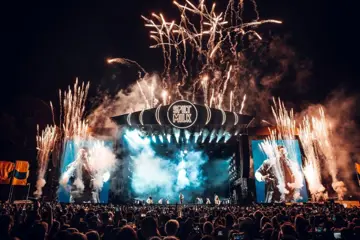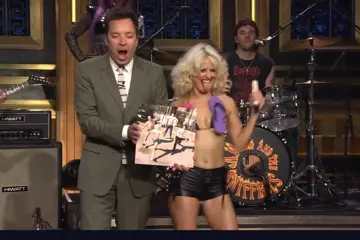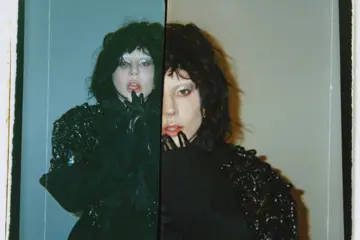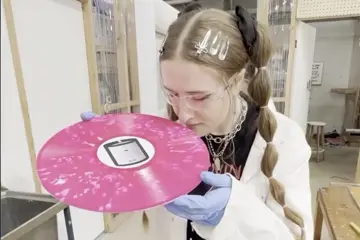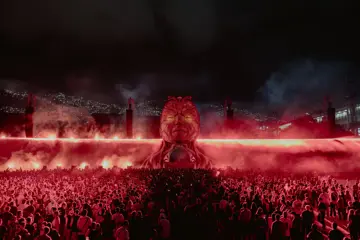Big West is a multicultural, multi-artform festival located at the centre of Melbourne's most multicultural suburb, Footscray. This Is Not A Protest, a performance piece staged by members and volunteers of the Asylum Seekers Resource Centre, begins right in Footscray's heart. "Fifteen minutes before the performance starts, everyone will gather in the Nicholson Street mall, and it will become a procession," explains co-creator Tanya Ngerengere, this procession leading to the festival's pop-up HOUSE built on Paisley Street.
"The audience will become part of the performance," Ngerengere continues. "They'll be taken in by the performers, and put through an initiation. The asylum seeker members become the interviewers, and the audience members become the interviewees. Then it becomes a lottery system where people are selected to go into the house, in this Wheel Of Fortune/Sale Of The Century type situation."
"The asylum seeker members become the interviewers, and the audience members become the interviewees."
This Is Not A Protest is a performance work that's "improvised, interactive, immersive", and is inspired by the stories of those who've come through the ASRC, including those still seeking asylum. "People are very generous talking about their experiences, what they've gone through," says Ngerengere. "There's lots of memories, joyful things, sad things, really overpowering emotions. A lot of their feelings are about that situation of just sitting and waiting, not knowing what's going to happen."
One of the contributors to This Is Not A Protest is Yomal Rajasinghe, who serves as an Assistant Creative Director. Rajasinghe first arrived in Australia in 2006, at 14, as refugee from Sri Lanka, and first came to the ASRC in search of help. "It's really hard to be an asylum seeker," he says. "Imagine, after you've been through all these terrible things back home, coming from war or hardship, and you come to a United Nations country, but when you get here you're in limbo. You're in a detention centre, or you don't have work rights, study rights, Medicare. It's a very frustrating situation, a real struggle."
Rajasinghe has been involved in ASRC performances since 2008, and volunteers at the centre. Even though he's now a permanent resident, he's stayed involved. "I could've forgotten all about being a refugee," Rajasinghe offers, "but I knew how much work there was still to be done with asylum seekers. Australia is doing what it can, but we can do so much better."
"The major idea behind [This Is Not A Protest]," he continues, "is to help Australians understand what asylum seekers are going through. Who are these people? Why are they here? Why are asylum seekers coming to Australia, and not another United Nations country? We want to combat all those stereotypes: 'queue-jumpers', 'They're coming to take our jobs', 'Australia belongs to us'. We want to give [people] new ideas, new knowledge about asylum seekers."
"It's sad that, in 2015, people can still be so ignorant about who asylum seekers are, and what's happening around the world," says Rajasinghe. "Once, visiting a school, I had these kids in Grade 10 tell me they thought that asylum seekers were queue-jumpers, burglars, thieves; essentially criminals. We have to educate Australians, get people to think of asylum seekers as human beings. How're we going to all be able to live here together on this planet if we can't remember that we're all people? That we're all the same?"

